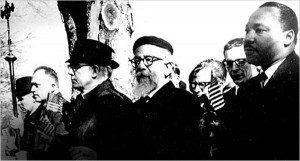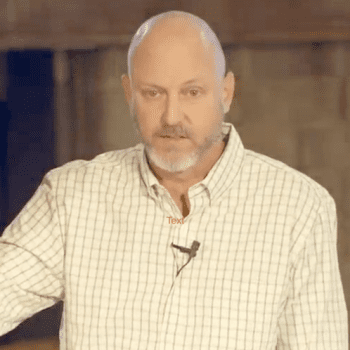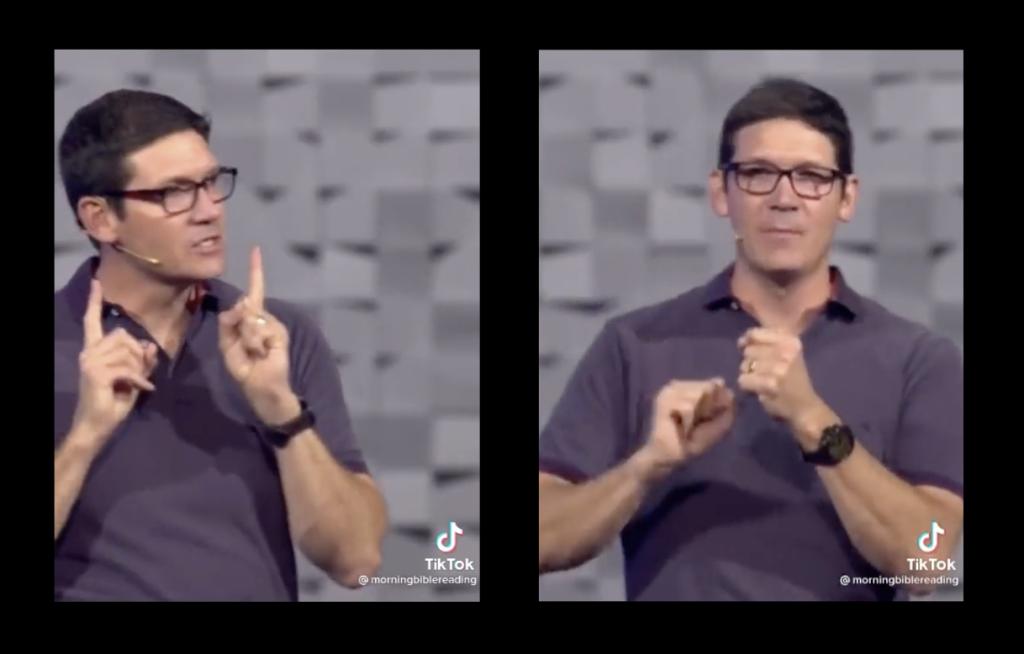 “He has told you, O mortal, what is good; and what does the Lord require of you but to do justice, and to love mercy, and to walk humbly with your God?” – Micah 6:8
“He has told you, O mortal, what is good; and what does the Lord require of you but to do justice, and to love mercy, and to walk humbly with your God?” – Micah 6:8
Micah really hit it out of the park with that single sentence… pure poetry. “He has told you, O Mortal, what is good,” and it has to do with justice, mercy, and humility. Aesthetically, it’s beautifully written. Plus it has the added benefit of offering deep insight into the human condition and vocation.
It should be no surprise that something so profound and beautiful should its way into many a book or talk or sermon. I’ve noticed lately that the way Micah 6:8 is typically treated tends to bother me, and I’ve been struggling to hone in on why. For one thing, I think we have a tendency to focus in on justice and forget about its integral connection to mercy and humility. Justice and mercy have to kiss. Without humility, justice makes us into politicians. I also think there is a tendency to excise justice from the life of the church. Something’s amiss with the way we conceive of the concept of justice in our Christian faith.
Justice in American life is typically signified by lady justice, the statue of the goddess Justitia, blindfolded, holding the scales of justice before her, symbolizing a justice that is blind and balanced. This justice sees all humans as equal, and attempts to restore balance by righting wrongs, and punishing the guilty. Lady justice treats everyone exactly the same and keeps the scales in balance, right? The only problem is that we all know justice is not blind, nor is it particularly balanced.
The question theologian and ethicist Stanley Hauerwas likes to put to lady justice is what do you do with a wrong so wrong it can never be made right? What do you do when there is no way to balance the scales? For instance, what do you do with the reality that America prospered for centuries on the backs of African slaves? What do you do with the genocide of millions of Native Americans? How do you restore the scales to a place of balance once you’ve dropped either one of those lead weights (slavery, genocide) on one side? It cannot be done. The scales of justice are an excellent tool in many respects, but they have nothing helpful to say about the wrong so wrong it can never be made right. How do we do justice, then? If the scales don’t work, what will?
Abraham Joshua Heshel, the great 20th century Jewish rabbi, scholar and civil rights activist whose entire family was killed by the 3rd reich, has written extensively on the subject of justice. Heschel seemed to think that God is not highly invested in the concept of justice, per se, and even then God’s view of justice is far different from ours.
“God’s concern for justice grows out of His compassion for man. The prophets do not speak of a divine relationship to an absolute principle or idea, called justice. They are intoxicated with the awareness of God’s relationship to His people and to all men. Justice is not important for its own sake; the motivation for justice, and the validity of its exercise lie in the blessings it brings to man. For justice, as stated above, is not an abstraction, a value. Justice exists in relation to a person, and is something done by a person. An act of injustice is condemned, not because the law is broken, but because a person has been hurt. What is the image of a person? A person is a being whose anguish may reach the heart of God” – Abraham Joshua Heschel, The Prophets, p. 276.
God doesn’t love justice. God loves people. Justice is not an end in itself, an abstraction, for that would make justice a moral absolute to which God is subject, (Heschel, 277). God’s desire for justice flows out of a deep love for creation, and humankind in particular. God is not attached to justice. God is attached to creation and human beings.
When people suffer injustice they cry out to God, “Aren’t you watching this, Lord? How long until you come balance the scales here? Give us a fair chance!” Heschel says that an essential part of personhood is that our anguish may reach the heart of God, and God moves in response. However, if Heschel is correct, God’s investment is not in a balanced scales, but in human flourishing, and the flourishing of all creation. Which means that justice will always involve mercy, and mercy is different from justice. Mercy means the unjust don’t get what they deserve, but receive mercy instead. If we are going to find a way to be okay with this, we must have humility. Micah was a genius, right? I think Heschel was, too. Perhaps this is the unique perspective only a Jewish rabbi can give, especially after the events of the 20th century, for the Torah and the prophets describe one instance after another of a God who moves in response to the human cry.
God heard the cry of the barren wives of the patriarchs and gave them children. God heart the cry of Hagar and protected her and her banished son. God heard the cry of his people who suffered under the lash of Pharaoh, and God pulled Moses out of Midian in response. God heard the cry of poor dead Abel’s blood as it soaked into the ground. The psalms are unintelligible without a God who hears the human cry. I could go on.
Justice, in the scripture, is not simply a situation in which everybody has a fair shot (when things are in balance). Justice is when everybody has enough, and not just enough, but enough to be who God intended them to be, to fulfill their God given purpose. We can all find meaningful things to do with our hands that are in line with our gifts and passions. We all experience relationships that fill our lives with joy, even in the midst of pain. We find ways to live together in interdependence, mutuality, love, and respect.
So what is God’s plan to work on the wrongs so wrong they can never be made right? On the whole, God’s plan is the same plan God initiated with the call of Abraham: to form a community of people so committed to worship of YHWH, that everybody in that community flourishes. This means that the church is indispensable in the pursuit of justice. Only the main pursuit is not justice, so much as it is the painful and unceasingly arduous task of learning how to worship with other broken people, to pray together, and to live interdependent lives.
The world doesn’t know what to do with a wrong so wrong it can never be made right. The church knows what to do. We do the only thing we can: We tell the truth about it, confessing it to God and to each other. And we forgive–forgive ourselves, forgive each other, forgive the world for being such a mess. Then we simply get on with the business of worship, and living out the transformation the worship of YHWH brings. And in the midst of our workaday lives, we pursue a way of being human that conforms to the pattern of the gospel–a way of being cruciform–and this involves doing justice, loving mercy, and walking humbly. (Even when doing justice causes us to suffer, and when mercy means that people who’ve got it coming–people we are prone to despise–get off scott-free).
Ultimately God’s answer to the injustice of the world is Jesus. But we must not think that Jesus is some kind of Annakin Skywalker, born to restore balance to the force. Jesus was doing, and is doing, what God has always been doing from start: Calling to God a people who would worship God alone, and conform their lives to God’s own pattern of being (cruciform, ecstatic love). If we are drawn into this life, a crazy thing happens: As God begins to hammer God’s image into our lives, we find that our ears become attuned to the cry of the human voice. We learn to respond to injustice in ever more creative and imaginative and powerful ways, with justice, mercy, and humility.
The world may exist in a dog-eat-dog free-for-all. But among God’s people, justice will grow and flourish. Justice will get up a head of steam in our midst. Justice will be done in our midst not because God loves justice (at least not as an ultimate end in mind), but because God loves humans and the good creation God has made. This means (Hauerwas/Willimon), that the church is to be a little colony of heaven in a culture of hell. We are to be the one place where every single life counts. Not because we are committed to the concept of justice, but because we are committed to worshipping the God who hears the cry of the human voice. Because we are so committed, we cannot conceive of living any other way that fully committed to justice, mercy, and humility, and the flourishing of all things.












